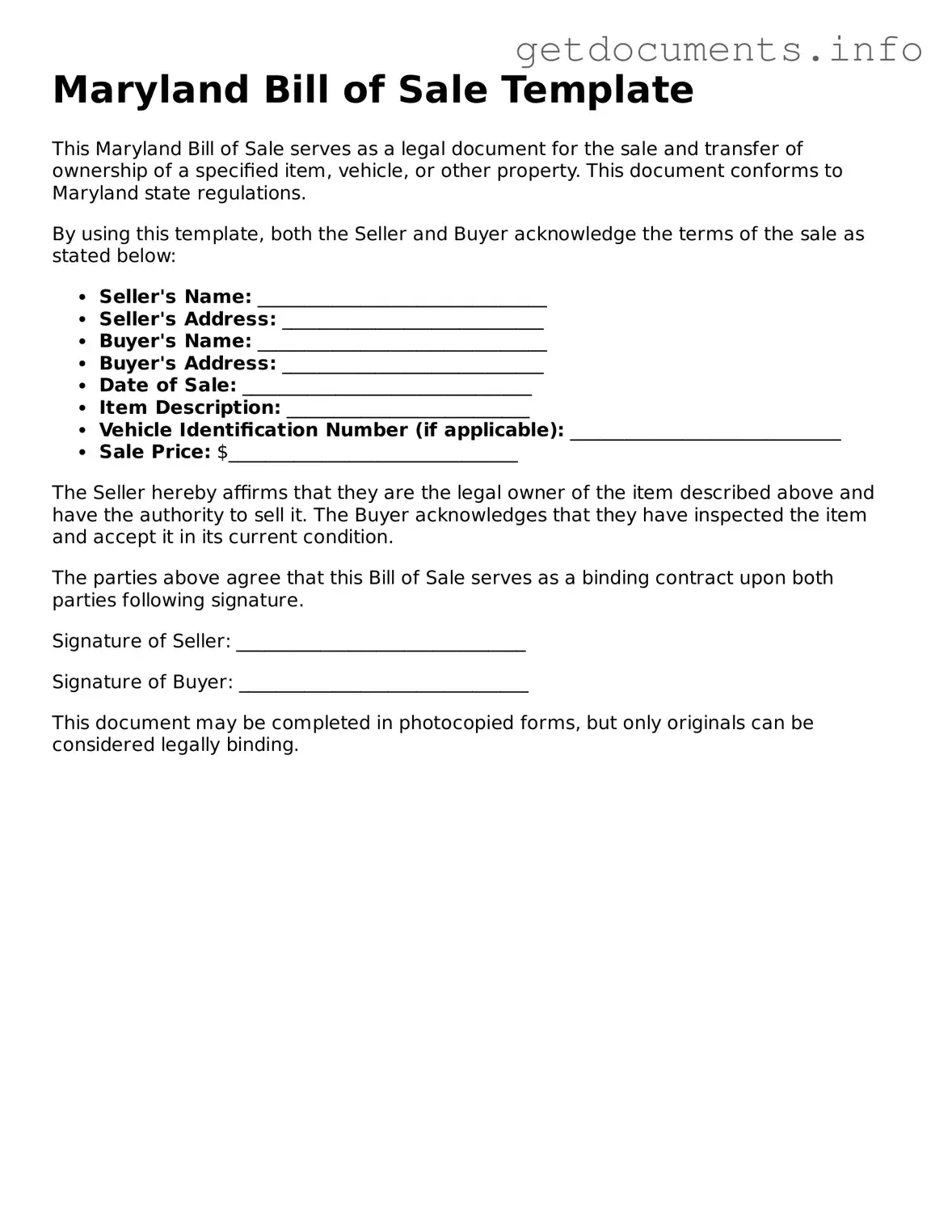Free Bill of Sale Template for Maryland
The Maryland Bill of Sale form is a legal document used to record the transfer of ownership of personal property from one individual to another. This form provides essential details about the transaction, including the items sold, the sale price, and the identities of both the buyer and seller. To ensure a smooth transfer, it’s important to fill out the form accurately; click the button below to get started.
Access Bill of Sale Editor

Free Bill of Sale Template for Maryland
Access Bill of Sale Editor
Got places to be? Complete the form fast
Fill out Bill of Sale online and avoid printing or scanning.
Access Bill of Sale Editor
or
⇩ PDF File
